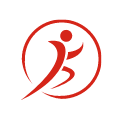
If you’re trying to get fit and healthy, it can be hard to know what information is fact versus fiction. With so many fitness myths out there, it can be difficult to separate truth from lies. But don’t worry—we’re here to help debunk five of the biggest fitness myths and arm you with the facts! From lifting heavy weights to energy drinks, get ready to learn the truth behind these common misconceptions.
Myth 1: Exercising Gives You Perfect Muscles Overnight
It’s impossible to achieve perfect muscles overnight, no matter how much you work out. While regular exercise and weight training can help build muscle mass over time, it takes a lot of dedication and hard work to get the body you want. Working out three to five times per week for an hour each session, along with a healthy diet including lean proteins, healthy fats and carbohydrates from whole grains, is essential for building muscle. Additionally, genetics play a role in determining your muscle size—it’s important to keep in mind that family history will influence how quickly you see results.
The key is to be consistent and patient; focus on reaching specific goals such as increasing your strength or boosting your metabolic rate instead of looking for the ‘perfect’ body right away. Finally, make sure you avoid junk food, sugary drinks and other unhealthy items that can lead to weight gain or loss of muscle mass. With consistency and good food choices, you can reach your fitness goals!

Myth 2: Lifting Heavy Weights Will Make Women Bulky
This is a common misconception that can easily be debunked. While it’s true that lifting heavy weights can help build muscle, it won’t make you bulky unless you’re consuming an excessive amount of calories. In fact, weight training is one of the best ways to increase strength and gain lean muscles. Women who lift heavy weights are much less likely to become ‘bulky’ than those who don’t because their bodies simply aren’t designed to put on excess muscle mass.
Also, it’s important to note that most women will not get bulky from lifting weights even if they eat a lot of calorie-dense foods such as protein shakes and bars. This is because the body needs more energy than what these foods provide in order to produce larger muscles.
The bottom line is that weight lifting for women should focus on building strength and lean muscle mass, not bulkiness. It’s also important to remember that genetics play a role in how quickly or easily you gain muscle—so be patient with yourself and your progress! With proper nutrition, dedication and consistency, you can achieve the body you want without worrying about becoming too bulky.
Lifting heavy weights can be a great way to build strength and lean muscle mass, so don’t let the fear of ‘bulking up’ stop you from reaching your goals. With proper nutrition and dedication, you can achieve the body you want without worrying about becoming too bulky.
Myth 3: Eating Gluten Free Is Healthier Than Eating Regular Foods
This is a common misconception that’s been debunked by numerous studies. While it’s true that some people may have gluten intolerances or allergies, this doesn’t mean that all individuals should switch to a gluten-free diet. In fact, research has shown that there are very few health benefits to a gluten-free lifestyle when compared to a balanced diet with foods containing gluten.
Eating healthy means focusing on nutritious whole foods, such as fruits and vegetables, lean protein sources, and healthy fats like olive oil. It also means avoiding processed and fast food as much as possible. Whether you’re eating regular foods or gluten-free alternatives doesn’t make much of a difference when it comes to nutrition—it’s the type of food you choose that matters most.
So if you don’t have any diagnosed intolerances or allergies, there is no need to cut out all gluten from your diet for better health. Instead, focus on making smart food choices and think about what will benefit your body the most. And don’t forget – listen to your body and enjoy your favorite foods in moderation!

Myth 4: Energy Drinks Improve Performance During Workouts
Energy drinks are popularly associated with improved performance during workouts, but the truth is that they won’t do much to help you reach your fitness goals. While the caffeine and sugar in energy drinks can provide short-term boosts of energy, research has shown that these beverages don’t offer any long-term benefits. In fact, it’s been suggested that too much caffeine can actually be detrimental to your workout performance.
The best way to improve your performance during workouts is through proper nutrition, hydration, and rest. Eating a balanced diet full of nutritious foods will provide you with the fuel needed for optimal performance. Make sure you’re drinking enough water throughout the day and getting enough rest at night to stay energized and focused during your workouts. Additionally, adding regular strength training and high-intensity interval training into your routine can also help increase your overall endurance and power output.
So if you’re looking for an edge when it comes to enhancing your exercise performance, energy drinks aren’t going to cut it! Instead focus on eating right, hydrating properly, and getting adequate rest – all of which are essential components to reaching peak physical performance.
Myth 5: You Have to Exercise Multiple Times Per Week to See Results
It’s a common misconception that you need to exercise multiple times per week in order to see results. While regular exercise is important for your overall health and well-being, it’s not always necessary to work out multiple times per week in order to get the desired results.
In fact, studies have shown that just two days of high-intensity exercise per week can be enough to help improve your cardiovascular health, reduce body fat, and build lean muscle mass. Additionally, research has found that one weekly session of weight training can also help increase muscle size and strength.
The most important factor when it comes to seeing fitness results is consistency. No matter how often you choose to work out, make sure you are doing so consistently and pushing yourself each time. Find an activity or workout routine that works best for you and stick with it – that’s what will get you the best results in the long run!

Conclusion
All in all, there are many fitness myths out there that can lead to misconceptions about the best ways to get fit and stay healthy. While it’s important to stay informed, make sure you’re separating fact from fiction when it comes to your health and fitness goals. Eating a nutritious diet, staying hydrated, getting regular exercise, and resting adequately are all key components to achieving peak performance in any activity. So don’t fall for any fitness myths – focus on what works best for you and your body.






